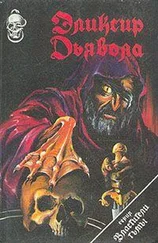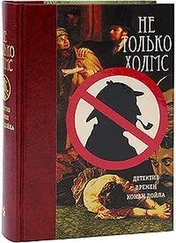Роберт Чамберс - The Dark Star
Здесь есть возможность читать онлайн «Роберт Чамберс - The Dark Star» весь текст электронной книги совершенно бесплатно (целиком полную версию без сокращений). В некоторых случаях можно слушать аудио, скачать через торрент в формате fb2 и присутствует краткое содержание. Год выпуска: 2014, Издательство: epubBooks Classics, Жанр: Классическая проза, на английском языке. Описание произведения, (предисловие) а так же отзывы посетителей доступны на портале библиотеки ЛибКат.
- Название:The Dark Star
- Автор:
- Издательство:epubBooks Classics
- Жанр:
- Год:2014
- ISBN:нет данных
- Рейтинг книги:3 / 5. Голосов: 1
-
Избранное:Добавить в избранное
- Отзывы:
-
Ваша оценка:
- 60
- 1
- 2
- 3
- 4
- 5
The Dark Star: краткое содержание, описание и аннотация
Предлагаем к чтению аннотацию, описание, краткое содержание или предисловие (зависит от того, что написал сам автор книги «The Dark Star»). Если вы не нашли необходимую информацию о книге — напишите в комментариях, мы постараемся отыскать её.
The Dark Star — читать онлайн бесплатно полную книгу (весь текст) целиком
Ниже представлен текст книги, разбитый по страницам. Система сохранения места последней прочитанной страницы, позволяет с удобством читать онлайн бесплатно книгу «The Dark Star», без необходимости каждый раз заново искать на чём Вы остановились. Поставьте закладку, и сможете в любой момент перейти на страницу, на которой закончили чтение.
Интервал:
Закладка:
"I don't understand," repeated the Princess impatiently. "I explained very carefully what I desired. That new groom is stupid. Caron, my chauffeur, would never have made a mistake unless that idiot groom misunderstood his instructions."
"Let me go and make some inquiries," said Neeland. "Do you mind waiting here? I'll not be long―"
He went off, carrying the olive–wood box, which his grasp never quitted now; and presently the Princess and Ruhannah saw him disappear among the ranks of automobiles and cabs.
"I don't like it, Rue," repeated the Princess in a low voice. "I neither understand nor relish this situation."
"Have you any idea―"
"Hush, child! I don't know. That new groom, Verdier, was recommended by the Russian Embassy. I don't know what to think of this."
"It can't be anything—queer, can it, dear?" asked Rue.
"Anything can have happened. Nothing is likely to have occurred, however—unless—unless those Apaches were―"
"Naïa!"
"It's possible, I suppose. They may have attacked Picard as part of a conspiracy. The Russian Embassy may have been deceived in Verdier. All this may be part of a plan. But—I scarcely believe it…. All the same, I dislike to take a taxicab―"
She caught sight of Neeland returning; both women moved forward to meet him.
"I've solved the mystery," he said. "Naïa, your car was run into outside the station a few minutes after you left it. And I'm sorry to say that your chauffeur was badly enough hurt to require an ambulance."
"Where on earth did you learn that?"
"The official at the taxicab control told me. I went to him because that is where one is likely to receive information."
"Caron hurt!" murmured the Princess. "What a shame! Where did they take him, Jim?"
"To the Charité."
"I'll go this afternoon. But where is that imbecile groom of mine?"
"It appears that he and a policeman went to a garage on the repair truck that took your car."
"Was he arrested?"
"I believe so."
"What a contretemps !" exclaimed the Princess Mistchenka. "We shall have to take a taxicab after all!"
"I've ordered one from the control. There it comes now," said Neeland, as a brand new taxicab, which looked like a private car, drew up at the curb, and a smiling and very spick and span chauffeur saluted.
Neeland's porter hoisted trunk and suitcase on top; the Princess stepped into the limousine, followed by Rue and Neeland; the chauffeur took the order, started his car, wheeled out into the square, circled the traffic policeman, and whizzed away into the depths of the most beautiful city in the world.
Neeland, seated with his back to the driver, laid the olive–wood box on his knees, unlocked it, drew from his breast pocket the papers he carried; locked them in the box once more, and looked up laughingly at the Princess and Ruhannah as he placed it at his feet.
"There you are!" he said. "Thank heaven my task and your affair have been accomplished. All the papers are there—and," to Ruhannah, "that pretty gentleman you call the Yellow Devil is inside, along with some assorted firearms, drawing instruments, and photographs. The whole business is here, intact—and so am I—if that irrelevant detail should interest you."
Rue smiled her answer; the Princess scrutinised him keenly:
"Did you have trouble, Jim?"
"Yes, I did."
"Serious trouble?"
"I tell you it was like a movie in five reels. Never before did I believe such things happened outside a Yonkers studio. But they do, Naïa. And I've learned that the world is full of more excitingly melodramatic possibilities than any novel or scenario ever contained."
"You're not serious, of course," began Rue Carew, watching the varying expressions on his animated features; but the Princess Mistchenka said, unsmiling:
"A film melodrama is a crude and tawdry thing compared to the real drama so many of us play in every moment of our lives."
Neeland said to Rue, lightly:
"That is true as far as I have been concerned with that amazing box. It's full of the very devil—of that Yellow Devil! When I pick it up now I seem to feel a premonitory tingling all over me—not entirely disagreeable," he added to the Princess, "but the sort of half–scared exhilaration a man feels who takes a chance and is quite sure he'll not have another chance if he loses. Do you understand what I mean?"
"Yes," said the Princess unsmilingly, her clear, pleasant eyes fixed on him.
In her tranquil, indefinite expression there was something which made him wonder how many such chances this pretty woman had taken in her life of intellectual pleasure and bodily ease.
And now he remembered that Ilse Dumont apparently knew about her—about Ruhannah, too. And Ilse Dumont was the agent of a foreign government.
Was the Princess Mistchenka, patron and amateur of the arts, another such agent? If not, why had he taken this journey for her with this box of papers?
The passage of the Boulevard was slow; at every square traffic was halted; all Paris crowded the streets in the early afternoon sunshine, and the taxicab in which they sat made little speed until the Place de la Concorde opened out and the great Arc—a tiny phantom of lavender and pearl—spanned the vanishing point of a fairy perspective between parallel and endless ramparts of tender green.
"There was a lot of war talk on the Volhynia ," said Neeland, "but I haven't heard any since I landed, nor have I seen a paper. I suppose the Chancelleries have come to some agreement."
"No," said the Princess.
"You don't expect trouble, do you? I mean a general European free–for–all fight?"
"I don't know, Jim."
"Haven't you," he asked blandly, "any means of acquiring inside information?"
She did not even pretend to evade the good–humoured malice of his smile and question:
"Yes; I have sources of private information. I have learned nothing, so far."
He looked at Rue, but the smile had faded from her face and she returned his questioning gaze gravely.
"There is great anxiety in Europe," she said in a low voice, "and the tension is increasing. When we arrive home we shall have a chance to converse more freely." She made the slightest gesture with her head toward the chauffeur—a silent reminder and a caution.
The Princess nodded slightly:
"One never knows," she remarked. "We shall have much to say to one another when we are safely home."
But Neeland could not take it very seriously here in the sunshine, with two pretty women facing him—here speeding up the Champs Elysées between the endless green of chestnut trees and the exquisite silvery–grey façades of the wealthy—with motors flashing by on every side and the cool, leafy alleys thronged with children and nurse–maids, and Monsieur Guignol squeaking and drumming in his red–curtained box!
How could a young man believe in a sequel to the almost incredible melodrama in which he had figured, with such a sane and delightful setting, here in the familiar company of two charming women he had known?
Besides, all Paris and her police were at his elbow; the olive–wood box stood between his knees; a smartly respectable taxi and its driver drove them with the quiet éclat and precision of a private employé ; the Arc de Triomphe already rose splendidly above them, and everything that had once been familiar and reassuring and delightful lay under his grateful eyes on every side.
And now the taxicab turned into the rue Soleil d'Or—a new street to Neeland, opened since his student days, and only one square long, with a fountain in the middle and young chestnut trees already thickly crowned with foliage lining both sides of the street.
But although the rue Soleil d'Or was a new street to him, Paris construction is also a rapid affair. The street was faced by charming private houses built of grey Caen stone; the fountain with its golden sun–dial, with the seated figure—a life–size replica of Manship's original in the Metropolitan Museum—serenely and beautifully holding its place between the Renaissance façades and rows of slender trees.
Читать дальшеИнтервал:
Закладка:
Похожие книги на «The Dark Star»
Представляем Вашему вниманию похожие книги на «The Dark Star» списком для выбора. Мы отобрали схожую по названию и смыслу литературу в надежде предоставить читателям больше вариантов отыскать новые, интересные, ещё непрочитанные произведения.
Обсуждение, отзывы о книге «The Dark Star» и просто собственные мнения читателей. Оставьте ваши комментарии, напишите, что Вы думаете о произведении, его смысле или главных героях. Укажите что конкретно понравилось, а что нет, и почему Вы так считаете.












